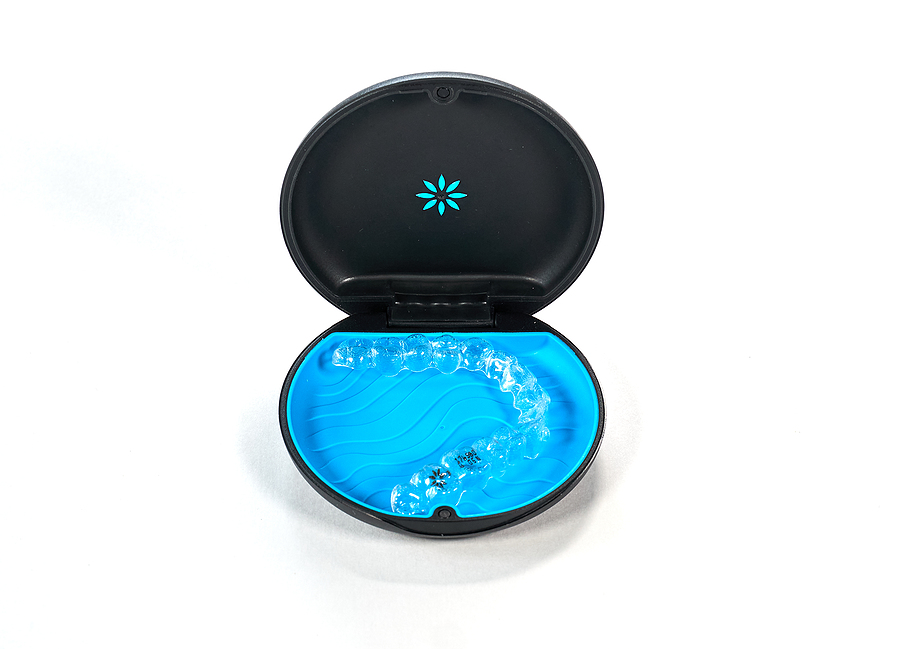![This is a thumbnail image of blog What Are the Causes of Gum Disease? This is a thumbnail image of blog What Are the Causes of Gum Disease?]()
What Are the Causes of Gum Disease?
Jul 21, 2023![This is a thumbnail image of blog Best Practices For A Healthy Smile This is a thumbnail image of blog Best Practices For A Healthy Smile]()
Best Practices For A Healthy Smile
Nov 29, 2022![This is a thumbnail image of blog A Comprehensive Guide to Invisalign in Redmond, OR: Straightening Your Smile with Confidence This is a thumbnail image of blog A Comprehensive Guide to Invisalign in Redmond, OR: Straightening Your Smile with Confidence]()
A Comprehensive Guide to Invisalign in Redmond, OR: Straightening Your Smile with Confidence
Oct 16, 2024![tooth extraction in Redmond, OR tooth extraction in Redmond, OR]()
Understanding the Need for Tooth Extraction: 5 Common Reasons
Mar 19, 2024![This is a thumbnail image of blog Your Entire Body Can Feel Better If You Get Your Gum Disease Treated This is a thumbnail image of blog Your Entire Body Can Feel Better If You Get Your Gum Disease Treated]()
Your Entire Body Can Feel Better If You Get Your Gum Disease Treated
Jun 20, 2019

The Role of Dental Crowns in Restorative Dentistry: More Than Just a Cosmetic Fix
Your smile is one of your most valuable assets, and maintaining it can sometimes feel like a full-time job. When dental issues arise, finding the right solution becomes crucial—not just for aesthetics but also for functionality. Enter dental crowns, a versatile tool in restorative dentistry that does far more than improve your appearance. Whether you're dealing with decay, damage, or wear and tear from years of use, crowns can provide support and protection to your teeth while enhancing your overall health. If you’re in Redmond, OR, and curious about how dental crowns might benefit you beyond just looking good, keep reading to learn all about them!
What are Dental Crowns?
Dental crowns are custom-made caps that fit over a damaged or weakened tooth. They restore its shape, size, strength, and appearance.
These crowns can be crafted from various materials like porcelain, metal, or ceramic. This variety allows for personalized solutions based on individual needs and preferences.
When placed correctly by your dentist, a dental crown acts as a protective barrier. It shields the tooth from further damage while ensuring you can bite and chew comfortably.
Crowns can also enhance your smile's aesthetics by blending seamlessly with natural teeth. Whether it's due to decay, fractures, or wear from grinding habits—crowns offer a reliable option for restoration that goes beyond simple visual appeal.
The Different Types of Dental Crowns
When it comes to dental crowns, variety is key. Each type serves specific needs and preferences.
- Porcelain crowns offer a natural look. They blend seamlessly with your existing teeth and are ideal for front teeth restorations. Their aesthetic appeal makes them a popular choice among patients seeking beauty alongside functionality.
- Metal crowns, on the other hand, provide unparalleled strength. Often made from gold or silver alloys, these options excel in durability. They're perfect for molars that endure heavy chewing forces.
- Resin crowns tend to be more affordable but may not last as long as metal or porcelain options. They work well in situations where cost efficiency is crucial.
- Now there's also ceramic-fused-to-metal (PFM) crowns that combine aesthetics with strength. These create a balance between visual appeal and resilience, making them suitable for various dental applications.
Choosing the right crown involves understanding your unique situation and discussing it with your dentist.
When is a Dental Crown Needed?
- Dental crowns are often necessary in various situations. They provide essential support and protection for damaged teeth.
- If you have a tooth that’s severely decayed, a crown can restore its function and appearance. When decay extends beyond what a filling can handle, this solution becomes vital.
- Cracked or fractured teeth also benefit from crowns. These restorations stabilize the structure of the tooth, preventing further damage.
- Additionally, if you've undergone root canal therapy, placing a crown is usually recommended to cover and protect the treated area.
- Patients with large fillings may need crowns as well since these materials can weaken natural teeth over time. A dental crown helps regain strength while maintaining aesthetic appeal.
- Regular check-ups with your dentist will help determine if you might need one soon based on your oral health and any potential concerns.
Benefits of Dental Crowns Beyond Aesthetics
- Dental crowns are often associated with enhancing smiles, but their benefits extend far beyond aesthetics. They play a vital role in restoring tooth function and health.
- Crowns provide strength to weakened teeth, making it easier to chew and bite. This added durability can prevent further damage or decay, saving you from more extensive procedures later on.
- Additionally, dental crowns can protect vulnerable areas after root canal treatment. They act as a shield against bacteria and other harmful agents that could lead to complications.
- For patients with large fillings or fractures, crowns offer stability by encasing the entire tooth structure. This support helps maintain alignment and prevents shifting in your bite.
- They contribute to overall oral health by helping distribute chewing forces evenly across your teeth. A balanced bite is essential for preventing jaw pain or discomfort over time. Contact us to learn more.
Procedure and Aftercare
The procedure for getting a dental crown typically involves two visits. During the first appointment, your dentist will assess the tooth needing restoration. They’ll prepare it by removing any decay and shaping it to fit the crown securely. Next, an impression of your tooth is taken. This ensures that your custom crown fits perfectly with your bite and surrounding teeth. A temporary crown is placed while you wait for the final one to be crafted.
After receiving your permanent crown, care should be taken in the initial days. Avoid hard or sticky foods that might dislodge it. Maintaining good oral hygiene is crucial for longevity. Brush gently around the crowned area and floss daily to keep gums healthy. Regular check-ups allow for monitoring of both crowns and overall dental health. Being proactive can extend the life of these restorations significantly.
Conclusion
Dental crowns serve a crucial role in restorative dentistry. They are not just about improving the appearance of your smile; they also offer significant functional benefits. Whether you're facing tooth decay, damage from an injury, or simply need support for a weak tooth, dental crowns can be an effective solution.
Understanding the different types of dental crowns helps you make informed decisions with your dentist. From porcelain to metal options, each type has its unique advantages tailored to specific needs and preferences.
When it comes to determining whether you need a crown, common indicators include extensive decay that can't be effectively treated with fillings or root canal therapy. Your dentist will guide you through this process and recommend the best course of action based on your individual circumstances.
The benefits extend beyond aesthetics as well. Dental crowns restore function by providing strength and stability to damaged teeth. They also help maintain proper bite alignment and prevent further wear on adjacent teeth.
Aftercare following crown placement is straightforward but vital for long-term success. Proper oral hygiene practices should be maintained, alongside regular check-ups with your dentist in Redmond, OR.
With various applications in both cosmetic enhancement and functional restoration, understanding dental crowns enriches not only your knowledge but also empowers better choices regarding oral health care solutions available today.
Location
774 SW Rimrock Way, Redmond, OR 97756
Phone: (541) 923-7633
Office Hours
MON8:00 am - 5:00 pm
TUE - THU7:00 am - 5:00 pm
FRI - SUNClosed




















comments